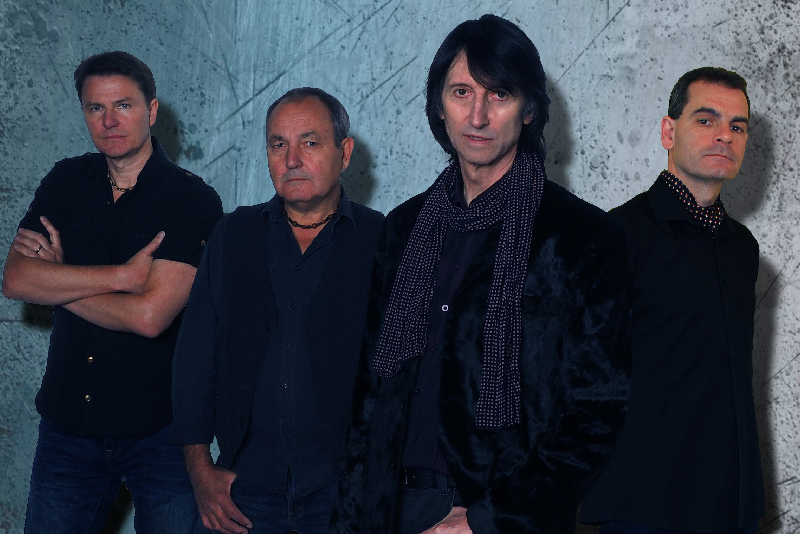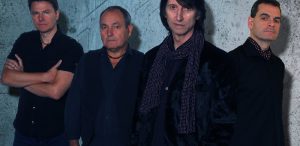
An interview with Bob Jackson of Badfinger
Guitarist, keyboardist and songwriter Bob Jackson first joined Badfinger in 1974, at a stage when Peter Ham’s future with the band was unclear. An accomplished musician, who had worked with progressive rock outfits Indian Summer and Ross, he had an immediate impact on the band as they recorded the album Head First, one which remained unreleased until 2000, as the band headed towards a split. After their initial disbandment, Jackson remained in contact with members of the group and formed breakaway projects, remaining active until the reformation of the group. Today, Jackson leads a Badfinger line-up which features Andy Nixon on guitar and vocals, Michael Healy on bass and Ted Duggan on drums. Ahead of their show at Band on the Wall on 8th September we spoke to Jackson about his introduction to the band and what to expect from their live set.
Prior to your first work with Badfinger, you recorded some great music with the outfits Indian Summer and Ross. What did your early musical experiences teach you about music and the industry, and were they adequate preparation for your experience joining Badfinger?
I guess every early experience is bound to shape your future expectations. I was new to it all and pretty naïve as so many musos were back in the sixties and seventies. It sounds silly now, but I didn’t really understand that I was in a business – I was still driven by the joy and challenge of it all. I experienced problems with contracts and that made signing anything anathema to me. Eventually, I cottoned on to the fact that despite gigs and records I was only scraping by, and I started being more careful. But nothing could prepared me for Badfinger and what was to come. There isn’t a better (or worse) example of corruption and betrayal in the entire history of contemporary music. You couldn’t make it up. I’m not going to go into it all here but suffice to say, Badfinger’s history is rich in detail; and the story’s not over yet.
You’ve mentioned the similarities in the message of your song In a Different World and Peter Ham’s track, Perfection. What are the key topics you’re currently addressing through music, and what message is most imperative for you to convey?
I just want to emphasise, I wasn’t trying to say the song was better or even as good as Pete’s, but just that it contains a similar message of creating a change though peaceful non-violent means. Anyone, any individual can develop their social tolerance and self discipline. Just live it (‘be the change you want to see’), and try to influence those around you. That has to help on a grass-roots level. The lyric also mentions ‘You wouldn’t have to listen to the politics of hate’. Just be careful of who you grant the power to; make sure they reflect your ethics. Voting for the nicest suit or the smoothest tongue doesn’t work.
What were your experiences of the Apple studio while recording Head First in 1974? Had it been extensively redesigned by the time you were working there, and was it an interesting space to record in?
It was a fantastic experience but, you know, a bit unreal going inside Apple in Savile row. The Studio was still in the middle of renovation throughout the whole of the Head First recordings. Giant swathes of polythene at the entrance and passage. Despite that, it still held a really strong sense of importance and occasion. As you walked into the studio itself, the grand piano was right behind the door, with a Hammond and Leslie diametrically opposite next to the kit. We arranged vocal mics immediately in front of the control room window. Despite rising business pressures and Joey just quitting, the vibe between the four of us on the sessions was great. We got on well and supported each other and as a consequence, the song arrangements came together really quickly.
What pieces of kit are most important to your music today, either recording or in the live setting?
There have been massive changes since I began in the business. I started with an analogue 2-track back in the day, it was all there was. Then the Teac 4-track came out. Wow! When I got one of those (from The Hollies’ Tony Hicks), it felt very ‘big-time’. But those things were very primitive really, and things have evolved in leaps and bounds. Monitoring for vocals didn’t exist then, bands just got by as best they could listening to the bounce-back from the PA. So now, good monitoring is essential. The other thing for me is having a keyboard that can deliver the whole palette of sounds that it takes to play the Badfinger material. I’ve currently taken delivery of a Korg Kronos 88. It’s a beast! (Just taming it that’s the problem).
When you compile the setlist for your upcoming UK dates, which tracks do you simply have to include? What can we expect from your show here at Band on the Wall?
There’s one thing about the Badfinger catalogue, there a such a wealth of material and it’s tough figuring which ones to leave out. Definitely in are the hits No Matter What, Day After Day etc. Then there are a number of album tracks that fans will expect. Also, for the very first time, we’ll be featuring some songs off the Head First album that have never been played live before, anywhere! That’ll be something special! Further, I don’t see Badfinger as a museum piece or function band, you know, kinda stuck in time. So we’ll be featuring some new songs too. I guess our ethos is Beatle like; all kinds of styles, but great tunes that move you. What did Robert Fripp once say? Head, Heart and Hips. We’ll be aiming at all three.







